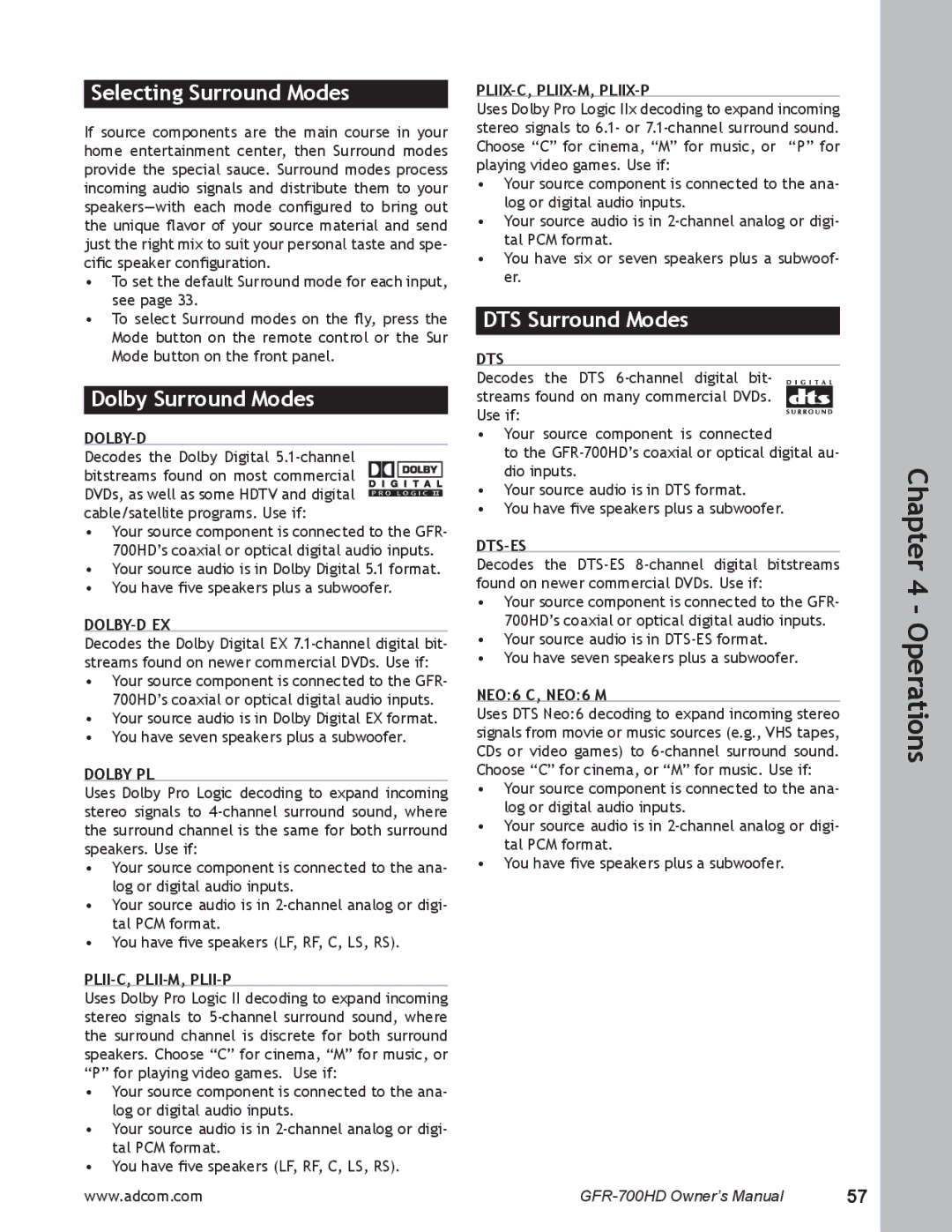
Selecting Surround Modes
If source components are the main course in your home entertainment center, then Surround modes provide the special sauce. Surround modes process incoming audio signals and distribute them to your
•To set the default Surround mode for each input, see page 33.
•To select Surround modes on the fly, press the Mode button on the remote control or the Sur Mode button on the front panel.
Dolby Surround Modes
DOLBY-D
Decodes the Dolby Digital
•Your source component is connected to the GFR- 700HD’s coaxial or optical digital audio inputs.
•Your source audio is in Dolby Digital 5.1 format.
•You have five speakers plus a subwoofer.
DOLBY-D EX
Decodes the Dolby Digital EX
•Your source component is connected to the GFR- 700HD’s coaxial or optical digital audio inputs.
•Your source audio is in Dolby Digital EX format.
•You have seven speakers plus a subwoofer.
DOLBY PL
Uses Dolby Pro Logic decoding to expand incoming stereo signals to
•Your source component is connected to the ana- log or digital audio inputs.
•Your source audio is in
•You have five speakers (LF, RF, C, LS, RS).
PLII-C, PLII-M, PLII-P
Uses Dolby Pro Logic II decoding to expand incoming stereo signals to
•Your source component is connected to the ana- log or digital audio inputs.
•Your source audio is in
•You have five speakers (LF, RF, C, LS, RS).
www.adcom.com
PLIIX-C, PLIIX-M, PLIIX-P
Uses Dolby Pro Logic IIx decoding to expand incoming stereo signals to 6.1- or
•Your source component is connected to the ana- log or digital audio inputs.
•Your source audio is in
•You have six or seven speakers plus a subwoof- er.
DTS Surround Modes
DTS
Decodes the DTS
•Your source component is connected
to the
•Your source audio is in DTS format.
•You have five speakers plus a subwoofer.
DTS-ES
Decodes the
•Your source component is connected to the GFR- 700HD’s coaxial or optical digital audio inputs.
•Your source audio is in
•You have seven speakers plus a subwoofer.
NEO:6 C, NEO:6 M
Uses DTS Neo:6 decoding to expand incoming stereo signals from movie or music sources (e.g., VHS tapes, CDs or video games) to
•Your source component is connected to the ana- log or digital audio inputs.
•Your source audio is in
•You have five speakers plus a subwoofer.
57 |
